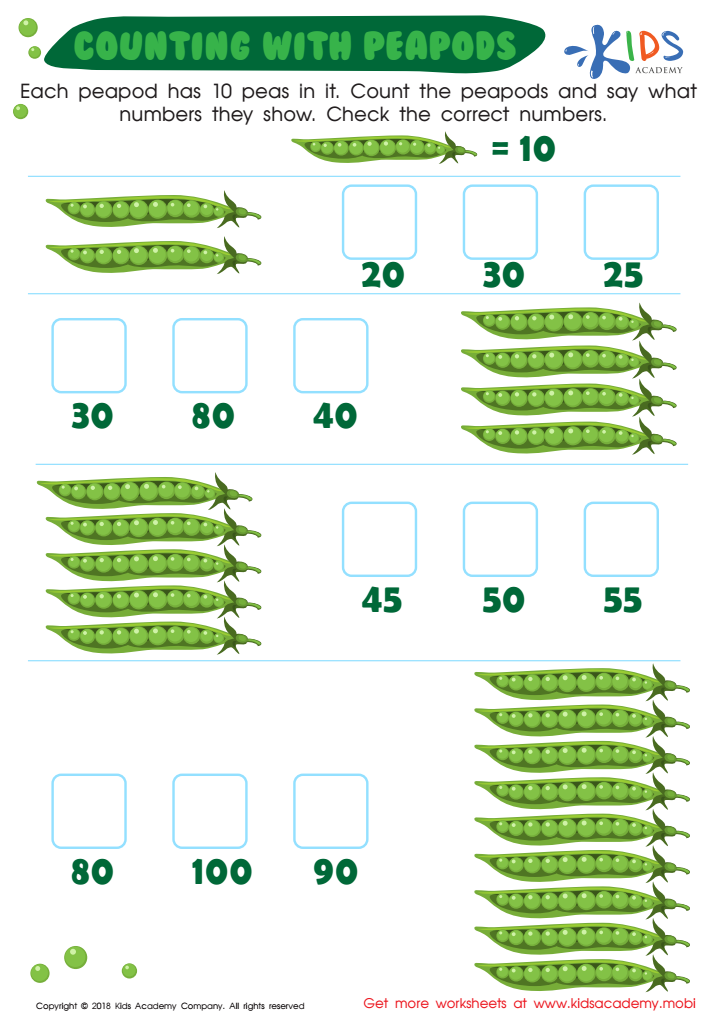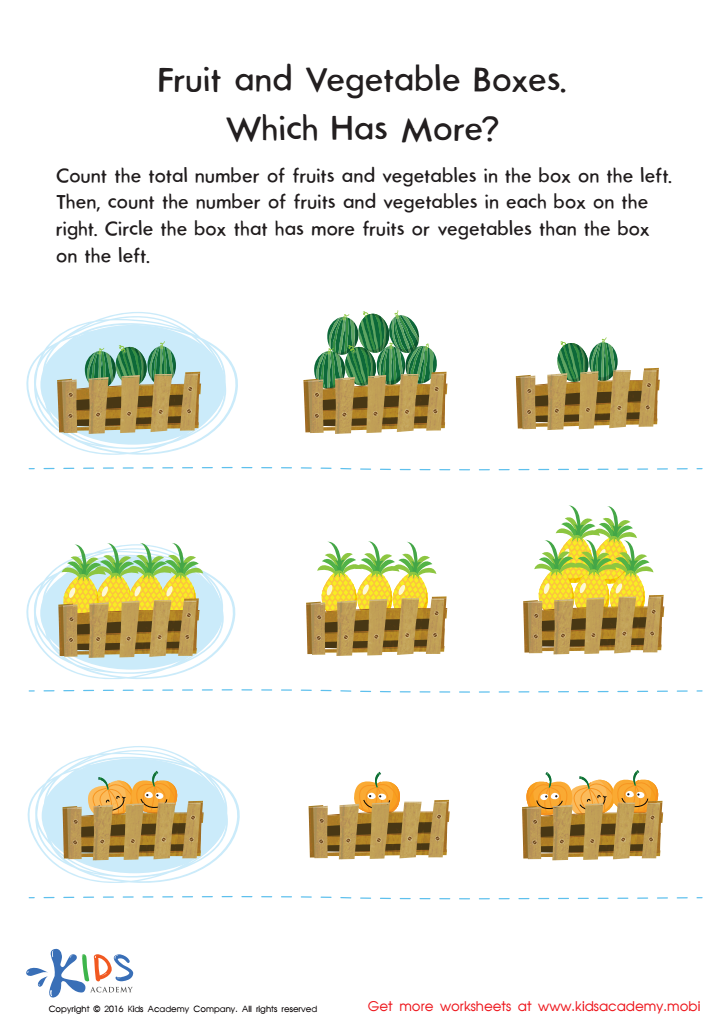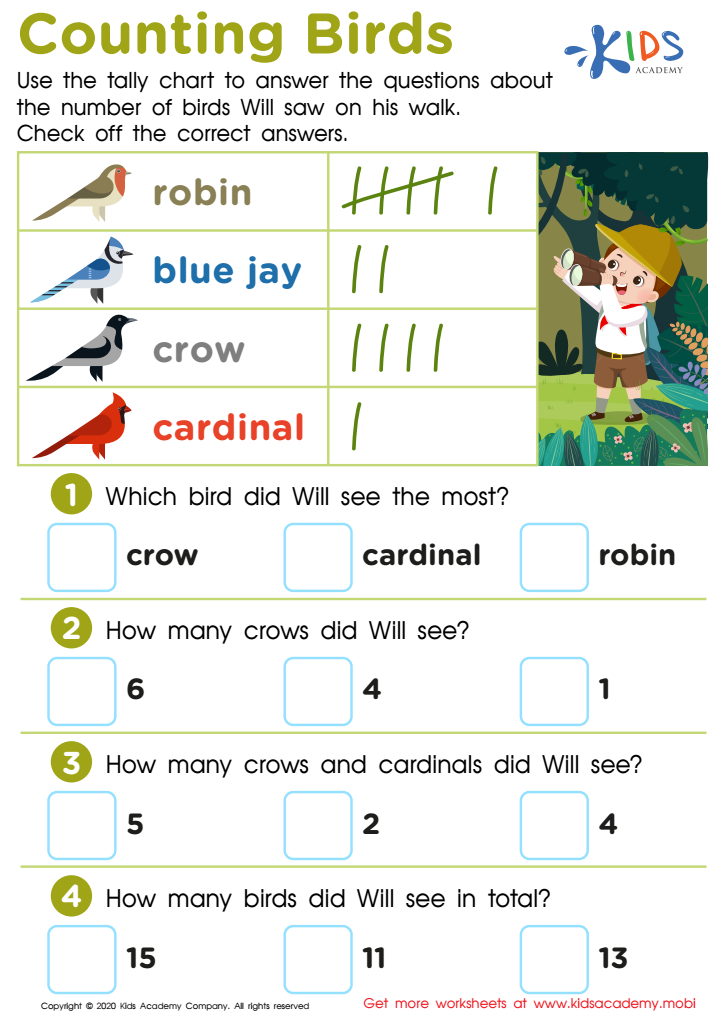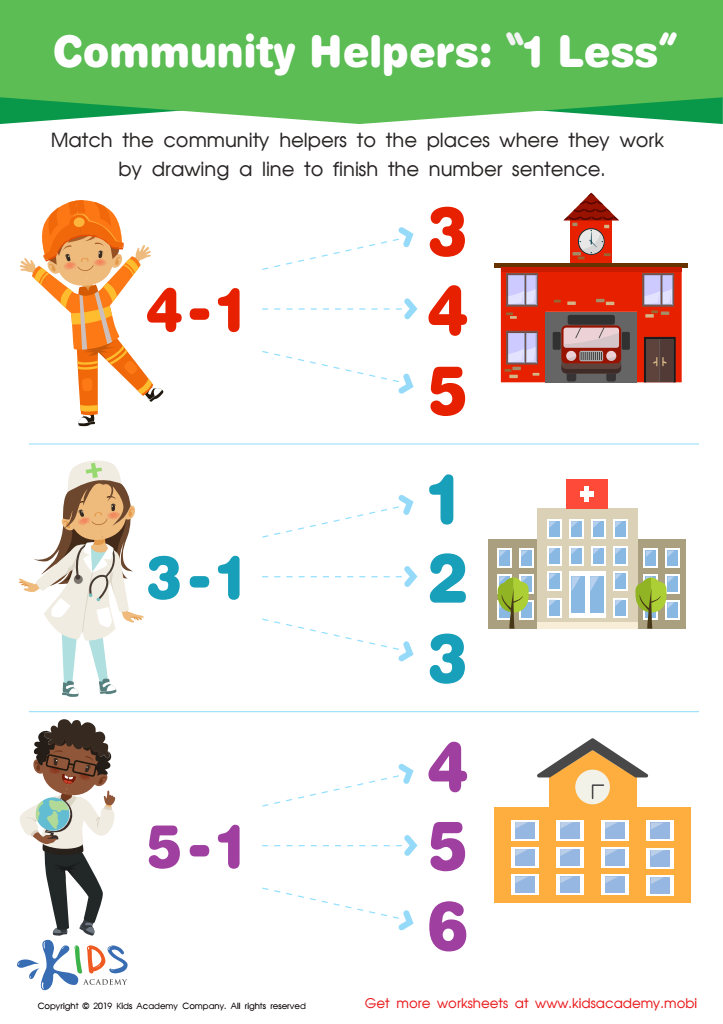Basic counting skills Extra Challenge Math Worksheets for Ages 5-6
4 filtered results
-
From - To
Enhance your child's early mathematical journey with our "Basic Counting Skills Extra Challenge Math Worksheets" designed for ages 5-6. These engaging and colorful worksheets provide a stimulating way for young learners to practice and reinforce fundamental counting skills. Featuring a variety of activities, including counting objects, number recognition, and simple math problems, these worksheets will encourage critical thinking and enhance number fluency. Perfect for both classroom and home use, these extra challenging worksheets empower children to build confidence in their math abilities while having fun. Explore our collection and inspire your child's love for counting and problem-solving today!


Number Worksheet: Counting With Peapods


Which Has More? Size Worksheet


Counting Birds Worksheet


Community Helpers: 1 less Worksheet
Basic counting skills are foundational for children's overall mathematical development and critical for their academic success. For parents and teachers of children aged 5-6, engaging with resources like the Extra Challenge Math program can significantly enhance a child's learning experience. At this age, children are ideally positioned to grasp numerical concepts and relationships, which form the basis for more advanced math operations later on.
Developing robust counting skills empowers young learners to recognize patterns, make comparisons, and solve problems. Mastery of counting fosters confidence, encouraging children to explore math more deeply and enjoyably. Moreover, it promotes essential cognitive skills such as logical reasoning and critical thinking, which are applicable beyond math.
Additionally, Basic counting skills are linked to everyday activities—like sharing toys or counting steps—which can make learning feel relevant and exciting. Utilizing resources like Extra Challenge Math helps maintain engagement and motivation, providing varied and interactive approaches to learning. By prioritizing these counting skills, parents and teachers can facilitate nurturing environments where children feel supported as they embark on their educational journeys, ultimately laying a strong mathematical foundation for lifelong learning and success.

 Assign to My Students
Assign to My Students
















